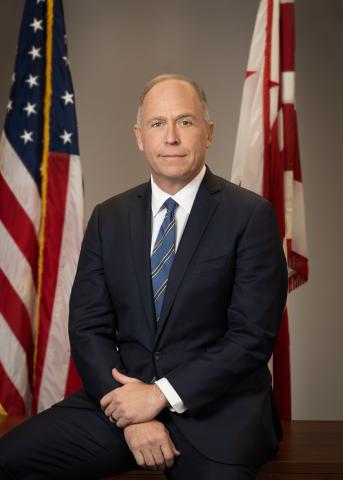Contents
If you are a tenant renting a home, the resources and tools below can help you protect your legal rights and deal with any problems you may have with your housing or with your landlord.
Know your rights
People who rent homes in the District of Columbia are protected by District law. The Office of the Tenant Advocate provides tenants with an overview of their basic rights, including the right to safe and sanitary living conditions. You can download a copy the Tenants Bill of Rights from the OTA website.
Click here to learn more about the laws that OAG can enforce to protect tenants.
Document and Report Problems
If you are having problems with your apartment, keep a notebook or diary. Track of all of the problems you are having, all of your conversations with the landlord, and any action the landlord takes to fix the issues. Keeping a record is very important in the event of a dispute about rent or repairs later.
- Start with a complete list of all the problems in your apartment. Write your name, unit number, and the date at the top of the list. If needed, make a separate list for problems in common/shared areas of your building or complex, such as hallways, stairwells, laundry rooms, and exterior areas.
Sample Diary Entry
|
Sample Diary Entry (1): List of Problems
Jane Doe, Unit #205, 5432 Sesame Street NW
June 3 2017
Problems in my apartment:
- Sink faucet is leaking water from the base of the tap when water is turned on
- Smell of mildew in cabinet area underneath sink (smell is still there even after wiping down cabinet area with cleaner)
- The counter top is separated from the wall
- The kitchen window is stuck, only opens about an inch
Problems in the common areas:
- The lights in the second floor hallway are out
- Locks on the front doors are broken, I have seen people who do not live in our building coming in and out without a key.
- Several mattresses are leaning against the dumpsters at the rear of the building; the trash collectors empty the dumpsters but they leave the mattresses there.
|
Take photographs or videos of any problems in your unit or building.
- Remember to label each photograph with the date and specific location where the picture was taken. Make sure to do this at or close to the time you take the photo. If you end up in a dispute with your landlord about repairs later, the dates can be very important. Sometimes landlords argue that a photograph is older than the tenant claims, and that they have already fixed the issue; or they argue that the photograph is of new damage and that they were not notified.
- If you are using a phone camera, email the photographs to yourself or to someone else right after you take them, along with a note that states when and where the photograph was taken. For example:
Sample Email
|
To: Tenant@personalemail.com
From: Tenant@personalemail.com
Re: Needed Repairs
Date: October 15, 2017 2:32 PM
Attachment: Photo-1.jpg
I took the photograph below today, October 15th, 2017, at 2:15 p.m.
The photograph shows a crack along the bottom of the wall in my son’s bedroom near the closet
|
- Notify your landlord, resident manager, or rental office about the violations.
- If possible, make all of your requests for repairs in writing. Keep a copy of every letter or note you write.
- If you call the landlord or management company to report a problem, write down the date and time of each call, the name of the person who takes your complaint, and any statements made about repairs.
- Keep a record of all activities related to the repairs you requested, including when you informed the landlord or property manager of the problem, what the landlord or property manager did in response to the complaint, and when and if the repairs were completed.
Sample Diary Entry 2
|
Sample Diary Entry (2): Notice to Landlord
July 18, 2017, 9:45 am – Called repair hotline. The woman who answered said her name was Sarah. I told her that I had a leak in my bathroom sink. She said she would put in a request and the company will have a plumber call me in the next day or two to make an appointment with me to look at the sink.
July 21, 2017, 10:45 am – Luke from Generic Plumbing Company called and asked if I can be home tomorrow afternoon for him to come look at the sink. I said what time and he said between 1 and 5 pm. Told him I work until 3pm but I can be home by 3:30. He said he will come around 3:30.
July 22, 2017, 6:00 pm – I waited at home between 3:30 and 6:00 pm but nobody came to my apartment or called
|
Request a Housing Code Inspection from DCRA
Rental homes are required to meet the standards set out in the District’s housing code, and most basic maintenance issues that tenants encounter are covered by the code. Therefore, if your landlord fails to make needed repairs, you can request an inspection from the Department of Consumer and Regulatory Affairs (DCRA). If the DCRA inspector finds code violations in your unit or in your building, the inspector can issue Notices of Violation ordering your landlord to make repairs.
The DCRA website provides an overview of housing code standards that are common issues for tenants as well as a Quick Housing Code Checklist that tenants can use to identify and document common code violations in their units.
Note: Mold is not part of the Housing Code and DCRA does not cite for mold. Please see the mold section below on how to address a mold issue with your landlord.
a. Request a DCRA Inspection
You can contact DCRA to request an inspection in any of the following ways:
Email:
dcra.housingcomplaints@dc.gov
Phone:
(202) 442-4400
Mail:
DCRA Inspections and Compliance Administration
1100 4th Street, SW, 4th Floor
Washington, DC 20024
b. Property-wide inspections
If there are other tenants in your building or complex who have problems in their units, or if there are problems that affect the whole building or complex (such as roof leaks, sewage backups, or rodent or insect infestation), you may want to request a property-wide inspection from DCRA.
If you cannot be present during a scheduled DCRA inspection, but you want the inspectors to cite the landlord for violations that exist in your unit, you can authorize someone else to provide access to your unit using the following form:
Dealing With Mold
Under District law, landlords are required to take action if a tenant notifies them of the presence of mold in their unit. See the below PDF for a summary of the legal requirements for landlords once they are notified of possible mold in a residence.
If there is mold in your apartment, send an email or a letter to your landlord about the mold.
Below is a form letter you can print out and fill in before sending to your landlord. Remember to keep a copy of your letter for your records.
After getting your email or letter, your landlord must perform a visual inspection of the mold within 7 days, and remove any mold that is found within 30 days of the inspection. The visual inspection must be done before the landlord takes any steps to remove the mold.
If a moldy area in your apartment is 10 square feet or more, your landlord must use a licensed professional to assess the mold problem, and another licensed professional to eliminate the mold.
Get Legal Help
If you are a tenant in a dispute with your landlord, please contact the Office of the Tenant Advocate for advice and links to resources, including legal representation.
Below is a list of free and low-cost legal services providers who specialize in housing matters. You can find additional information on free and low-cost legal services on our General Resources page.
- Neighborhood Legal Services
Neighborhood Legal Services strives to provide legal assistance to low-income residents of the District of Columbia regarding preventing evictions, homelessness, and related legal matters.
- Bread for the City
Volunteer and Staff attorneys represent clients in landlord-tenant disputes, Social Security disability benefits, and public benefits cases.
- University of the District of Columbia School of Law Housing and Consumer Law Clinic
The Housing and Consumer Law Clinic provides representation in housing-related civil litigation.
- Legal Counsel for the Homeless
Provides legal representation to low- and no-income clients through volunteer attorneys.
- University Legal Services
University Legal Services (ULS) is an intake center for the Department of Housing and Community Development's housing programs that help low and moderate-income families and individuals buy homes, rehabilitate homes, and prevent mortgage default and foreclosure. ULS also provides rental counseling and assists DC residents with locating affordable and accessible housing.
Tenant and Consumer Advocacy Organizations
The organizations below do not offer legal services or legal representation, but can provide advice and training on how to assert your rights as a tenant or consumer in the District.
- Latino Economic Development Corporation
Program assists low- to moderate-income Latinos and other DC area residents on financial advice.
- Housing Counseling Services
Provides comprehensive housing counseling, training, advocacy, technical assistance and housing opportunities for low and moderate-income homebuyers, homeowners, and tenants.
- DC Tenants Advocacy Coalition (TENAC)
TENAC is a nonprofit, public service organization dedicated exclusively to tenant interests, tenant rights and support for rent control in the District of Columbia.


